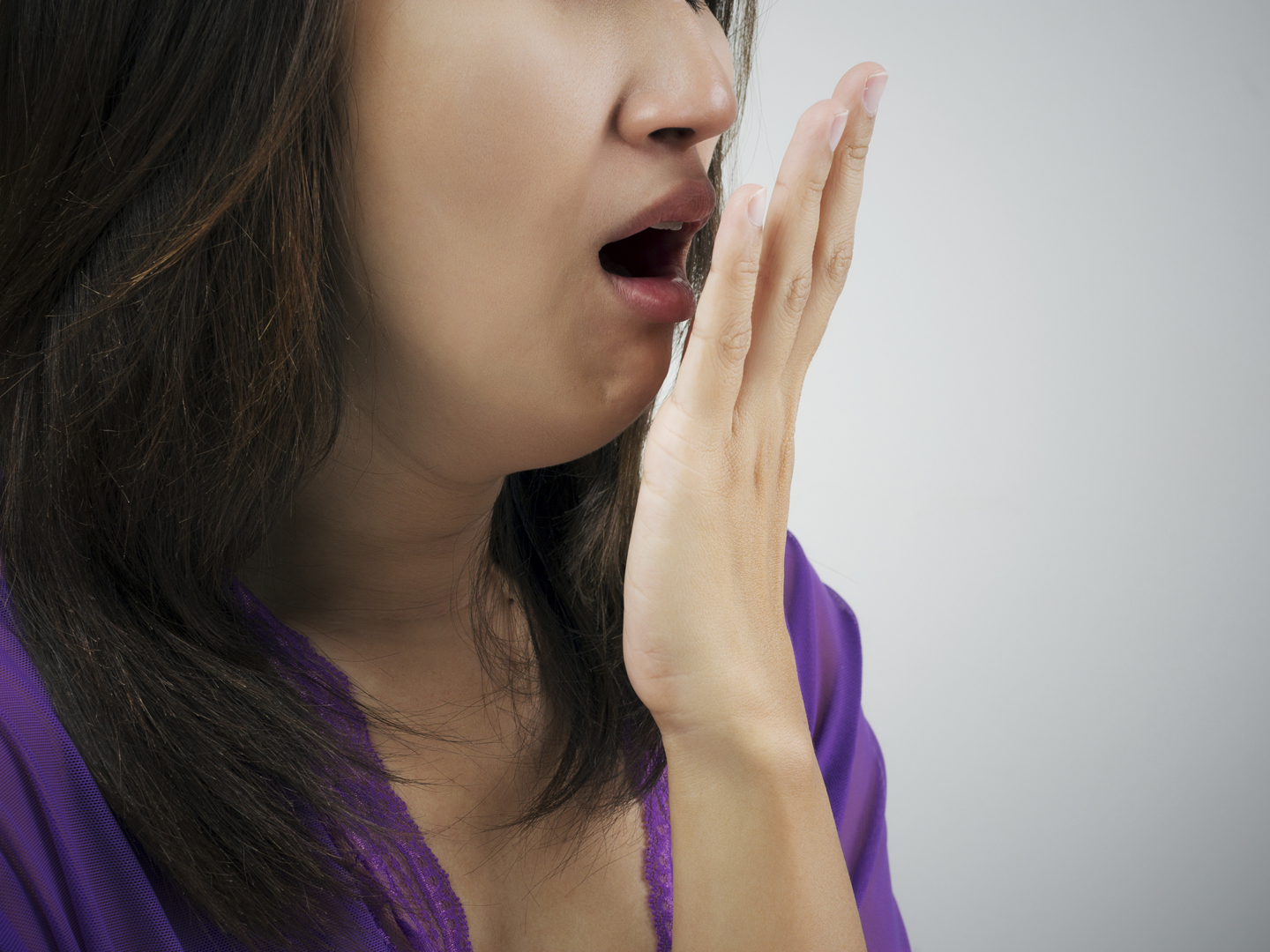Help for Halitosis?
Can you suggest any natural remedies for bad breath?
Andrew Weil, M.D. | May 21, 2007

The usual cause of bad breath is bacteria growing on food that accumulates between the teeth, on the tongue and around the gums. The obvious solution is brushing your teeth twice a day, flossing between your teeth daily and brushing your tongue as well as your teeth. You can do this with a toothbrush or gum scraper, a special metal or plastic instrument you use once or twice a day. I wouldn’t put much faith in mouthwashes like Scope or Listerine to eliminate bad breath. While they may help, they often don’t penetrate into the crevices of the tongue. That’s why I prefer brushing or scraping the tongue directly. It may seem uncomfortable at first, but you will quickly get used to it.
Switching toothpastes might also help to resolve a bad breath problem. Try one containing chlorine dioxide or look in your local health-food or herb store for products containing tea-tree oil, a powerful disinfectant that smells a bit like eucalyptus.
To deal with temporary bad breath stemming from eating garlic, onions or other pungent foods, try chewing a bit of parsley or some fennel seeds. Brushing, flossing and mouthwashes don’t eliminate this kind of odor but can mask it until your body eliminates the food that is responsible. Avoid regular use of breath freshening mints containing the artificial sweetener aspartame, which tastes peculiar and has been linked with headaches in some people.
Persistent bad breath (or a bad taste in the mouth) can be a warning sign of gum disease. Here, the bacteria that make up plaque create toxins that irritate the gums, so that they become inflamed and may bleed. If you have regular dental checkups, your dentist should spot early signs of this problem and recommend treatment (often from a periodontist).
Another potential cause of bad breath is dry mouth due to insufficient secretion of saliva as a result of salivary gland problems, breathing through the mouth or taking one or more of a number of medications that make the mouth dry. These include decongestants, diuretics and other blood pressure medications, antidepressants, antihistamines, muscle relaxants, drugs for urinary incontinence, and drugs used to treat Parkinson’s disease. If you take any such drugs regularly, ask your doctor or pharmacist to suggest an alternative.
Bad breath can also be a sign of thrush, postnasal drip, chronic bronchitis, a respiratory tract infection, diabetes, a gastrointestinal problem or liver or kidney disease. Before investigating these possible causes, see your dentist to determine whether or not your breath problem originates in your mouth. If not, see your physician to investigate further.
Andrew Weil, M.D.









